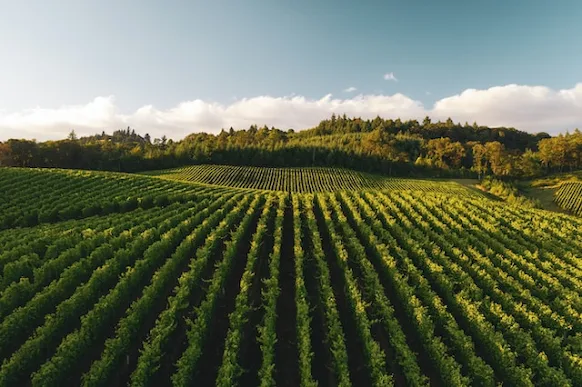 |
| Organic Farming |
Organic farming is a form of agriculture that is based on the principles of sustainability and environmental stewardship. It involves growing crops without the use of synthetic fertilizers, pesticides, or other chemicals. Organic farmers focus on building healthy soil, conserving resources, and promoting biodiversity as part of their production practices.
Organic farming has numerous benefits for both the environment and human health. It can help reduce pollution from agricultural runoff, improve water quality in rivers and streams, conserve soil fertility, reduce the use of energy-intensive fertilizers and pesticides, reduce greenhouse gas emissions from agricultural activities, and promote biodiversity by providing habitat for beneficial insects and wildlife. Additionally, organic produce is healthier for consumers due to its higher nutrient content and lower levels of toxic chemicals.
Organic farming is an agricultural practice that focuses on the production of food without the use of synthetic fertilizers, pesticides, and other chemicals. It is a form of sustainable agriculture that uses natural processes to maintain soil fertility, reduce water pollution, minimize soil erosion, and conserve biodiversity.
Organic farming has become increasingly popular in recent years due to its environmental benefits and its ability to produce healthier food. It also helps to reduce the amount of energy used in production as well as reducing the amount of waste created by conventional farming practices.
Organic farming is not only beneficial for our environment but it also provides economic opportunities for farmers by providing them with an alternative source of income. Moreover, organic foods are becoming increasingly popular among consumers who are looking for healthier alternatives to conventional produce.
This article will explore the various aspects of organic farming such as its benefits, challenges faced by farmers when transitioning from conventional methods to organic methods, and some tips on how to get started with your own organic farm
Organic farming is an important part of sustainable agriculture. It is a way of producing food without using synthetic chemical fertilizers, pesticides, or other artificial inputs. Organic farming uses natural methods such as crop rotation, cover crops, composting, and green manures to maintain soil fertility and promote healthy crop growth. It also relies on natural predators and other beneficial insects to control pests. By avoiding the use of synthetic chemicals, organic farming helps preserve the environment and conserve natural resources for future generations. In this article, we will discuss in detail about organic farming and its benefits.
Organic farming is an innovative and sustainable approach to agriculture that has been gaining popularity in recent years. Harisharan Devgan, an organic farmer has been a major proponent of this form of farming. His work has focused on introducing organic methods to the Indian agricultural sector and promoting sustainable practices among farmers. Through his efforts, he hopes to create a better future for both the environment and the people who depend on it for their livelihoods. In this essay, we will explore Harisharan Devgan's work in promoting organic farming in India, as well as its potential benefits for both small-scale farmers and society at large.
.png)


0 Comments